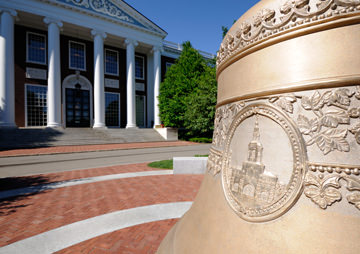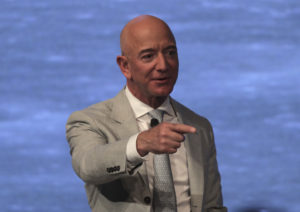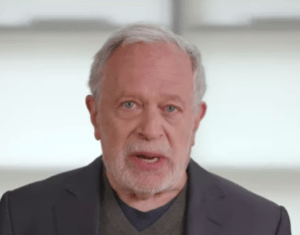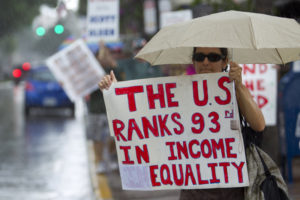Harvard Business School’s Role in Widening Inequality
No institution is more responsible for educating the CEOs of American corporations than Harvard Business School. Harvard Business School's Baker Library. Shutterstock
Harvard Business School's Baker Library. Shutterstock
This essay originally appeared on the Harvard Business Review’s blog and Robert Reich’s website.
No institution is more responsible for educating the CEOs of American corporations than Harvard Business School – inculcating in them a set of ideas and principles that have resulted in a pay gap between CEOs and ordinary workers that’s gone from 20-to-1 fifty years ago to almost 300-to-1 today.
A survey, released on September 6, of 1,947 Harvard Business School alumni showed them far more hopeful about the future competitiveness of American firms than about the future of American workers.
As the authors of the survey conclude, such a divergence is unsustainable. Without a large and growing middle class, Americans won’t have the purchasing power to keep U.S. corporations profitable, and global demand won’t fill the gap. Moreover, the widening gap eventually will lead to political and social instability. As the authors put it, “any leader with a long view understands that business has a profound stake in the prosperity of the average American.”
Unfortunately, the authors neglected to include a discussion about how Harvard Business School should change what it teaches future CEOs with regard to this “profound stake.” HBS has made some changes over the years in response to earlier crises, but has not gone nearly far enough with courses that critically examine the goals of the modern corporation and the role that top executives play in achieving them.
A half-century ago, CEOs typically managed companies for the benefit of all their stakeholders – not just shareholders, but also their employees, communities, and the nation as a whole.
“The job of management,” proclaimed Frank Abrams, chairman of Standard Oil of New Jersey, in a 1951 address, “is to maintain an equitable and working balance among the claims of the various directly affected interest groups … stockholders, employees, customers, and the public at large. Business managers are gaining professional status partly because they see in their work the basic responsibilities [to the public] that other professional men have long recognized as theirs.”
This view was a common view among chief executives of the time. Fortune magazine urged CEOs to become “industrial statesmen.” And to a large extent, that’s what they became.
For thirty years after World War II, as American corporations prospered, so did the American middle class. Wages rose and benefits increased. American companies and American citizens achieved a virtuous cycle of higher profits accompanied by more and better jobs.
But starting in the late 1970s, a new vision of the corporation and the role of CEOs emerged – prodded by corporate “raiders,” hostile takeovers, junk bonds, and leveraged buyouts. Shareholders began to predominate over other stakeholders. And CEOs began to view their primary role as driving up share prices. To do this, they had to cut costs – especially payrolls, which constituted their largest expense.
Corporate statesmen were replaced by something more like corporate butchers, with their nearly exclusive focus being to “cut out the fat” and “cut to the bone.”
In consequence, the compensation packages of CEOs and other top executives soared, as did share prices. But ordinary workers lost jobs and wages, and many communities were abandoned. Almost all the gains from growth went to the top.
The results were touted as being “efficient,” because resources were theoretically shifted to “higher and better uses,” to use the dry language of economics.
But the human costs of this transformation have been substantial, and the efficiency benefits have not been widely shared. Most workers today are no better off than they were thirty years ago, adjusted for inflation. Most are less economically secure.
So it would seem worthwhile for the faculty and students of Harvard Business School, as well as those at every other major business school in America, to assess this transformation, and ask whether maximizing shareholder value – a convenient goal now that so many CEOs are paid with stock options – continues to be the proper goal for the modern corporation.
Can an enterprise be truly successful in a society becoming ever more divided between a few highly successful people at the top and a far larger number who are not thriving?
For years, some of the nation’s most talented young people have flocked to Harvard Business School and other elite graduate schools of business in order to take up positions at the top rungs of American corporations, or on Wall Street, or management consulting.
Their educations represent a substantial social investment; and their intellectual and creative capacities, a precious national and global resource.
But given that so few in our society – or even in other advanced nations – have shared in the benefits of what our largest corporations and Wall Street entities have achieved, it must be asked whether the social return on such an investment has been worth it, and whether these graduates are making the most of their capacities in terms of their potential for improving human well-being.
These questions also merit careful examination at Harvard and other elite universities. If the answer is not a resounding yes, perhaps we should ask whether these investments and talents should be directed toward “higher and better” uses.
Your support matters…Independent journalism is under threat and overshadowed by heavily funded mainstream media.
You can help level the playing field. Become a member.
Your tax-deductible contribution keeps us digging beneath the headlines to give you thought-provoking, investigative reporting and analysis that unearths what's really happening- without compromise.
Give today to support our courageous, independent journalists.






You need to be a supporter to comment.
There are currently no responses to this article.
Be the first to respond.